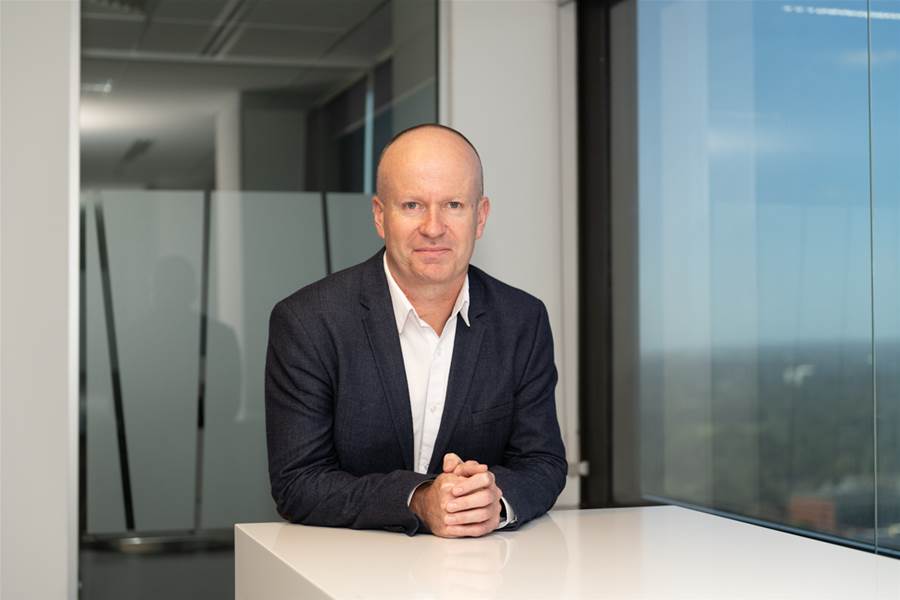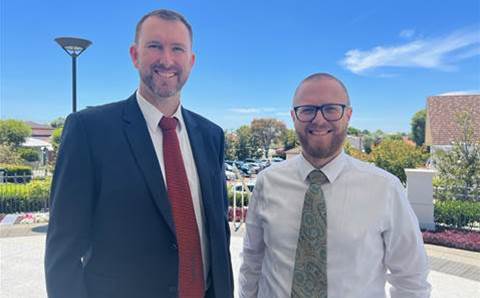Fortinet’s Tim Fitzgerald talks channel

Tim Fitzgerald spent a career in partnerland before founding Australian operations at Datacom and, subsequently, Fortinet. He’s picked up a great many insights along the way.
Tell us about the career journey that got you to where you are today
I started in the mid-90s where I worked in the Australian Stock Exchange, then joined a company called Centari Systems as my first IT job. I grew that business to the point where it was eventually acquired by systems provider, Commander, where I stayed on as a sales manager. In 2006, I founded the Datacom South Australia office with six other colleagues. We grew that into a $50M company with 100 staff members. I started with Fortinet in 2016. At first I was the South Australian and Western Australian channel manager and, in 2018, I moved into my current role of channel director and am now responsible for all Fortinet partners in Australia.
What unique insights did you gain along the way?
I've been on the partner side for most of my career and, with that in mind, I’ve learned the importance of having good products. I know everyone says that, but it’s really important to have products that actually work and solve business problems. There’s nothing worse than products that don’t resolve customer issues and are hard to install.
Also, all the great relationships I have with partners have been built on trust, respect, communication and just being easy to do business with. It’s important to go into conversations hand in hand, without having four different meetings with different stakeholders, and just help partners grow their business. It's really all about helping them grow.
What are the key challenges facing your partners and your advice for overcoming them?
COVID-19 has really changed the game. Customers are asking for flexible solutions. Customers are no longer just sitting in front of their desks, they’re sitting in multiple locations.
Also, partners need to collaborate better with their customers. They need to have broad conversations about solutions and they need to move faster.
We’re also finding that things like cloud and SD-WAN are particularly important at the moment.
Another element for Fortinet is training. Fortinet has a free training service that helps partners train their staff both technically and in terms of how to have the important conversations with their customers. Fortinet offers a full, eight-level certification program. While many vendors have these and base them on technical components, Fortinet has added sales and business coaching as a string to our bow, which has been well received and is proving really popular.
It’s all available via a comprehensive partner portal and participants just need to schedule a meeting and join. The program was previously physical but now it’s all virtual and that’s working really well. We’ve already trained thousands of partners this way.
Where does the channel need to gain in expertise and support?
Again, COVID-19 has changed the game. Customers are staying virtual. They want to work from home. Partners need to adjust to these needs.
We’re also seeing security become even more important across the board. As partners talk to customers and add more applications to the cloud, they’re going to have to continue to be more vigilant when it comes to security.
We’ve got partners who have become more focused on solutions selling rather than box moving and they’ve done really well because they’ve been able to move quickly. We've tried to help partners achieve that with our sales training and by providing solutions that they can take to market with confidence.
How else can Fortinet help the channel?
Fortinet works to a concept called the Fortinet security fabric. It stems from the observation that customers commonly engage several, independent, best-of-breed vendors. We’re winning business because we’re able to consolidate products and services, reduce complexity, offer quick deployment and visibility across the network and infrastructure. Fortinet products are fast to deploy and deliver strong return on investment sooner.
The Fortinet security fabric has been highly successful for customers in terms of improving their security posture; it has replaced two or three competitor racks for many of our SD-WAN customers this year.
Fortinet has also increased our managed services headcount to help provide content and offer best practice ideas. We’ve also bolstered our cloud alliance team, which has led to a lot more work in the public cloud space.
What positive and negative effects are COVID-19 having on demand?
There’s an increased desire for cloud computing, web-based apps, flexibility, remote meetings and cost reduction. Big, expensive networks are being reassessed. WANs are being reassessed. Top-line security continues to be more important; we’re seeing more threats all the time and that continues to be a considerable concern for customers.
Another positive is that Fortinet is helping MSPs create platforms that allow them to build repeatable solutions.
It’s important to help organisations get away from point solutions. If an organisation is relying on a point solution to run the business and provide the margins that the business needs, it’s getting more and more competitive. As people do more cloud-based work, channel partners need more consulting and a greater services capability.
A final note is the big skills gap around cybersecurity. There are big issues surrounding cybersecurity professionals and consulting. Fortinet is trying to address that through training but we’re also seeing some partners dropping restrictions on hiring location. For example, a company can hire a cybersecurity expert in New Zealand to control the business from there. This can help address the skills gap by opening up a wider talent pool.
Plans for back-half of 2020
Fortinet launched a new partner program, called Engage, this year and we’ll be continuing to push that to our partners. We’ve built some specialisations into it around cloud, SD-WAN, data centre, secure access and wireless. Many people have already taken that up, which is great.
There’ll also be more focus around building repeatable business for MSPs and we’ll continue to push our best-in-class training. Worldwide, we’ve opened up 24 public courses that, traditionally, only partners would get access to. We’ve had tens of thousands of people take advantage of that, for both tech and sales.
We’ll also be making sure that we’ve got a good connection with our public cloud providers, including Azure, Google, AWS, and working closely to let our partners connect to them.










